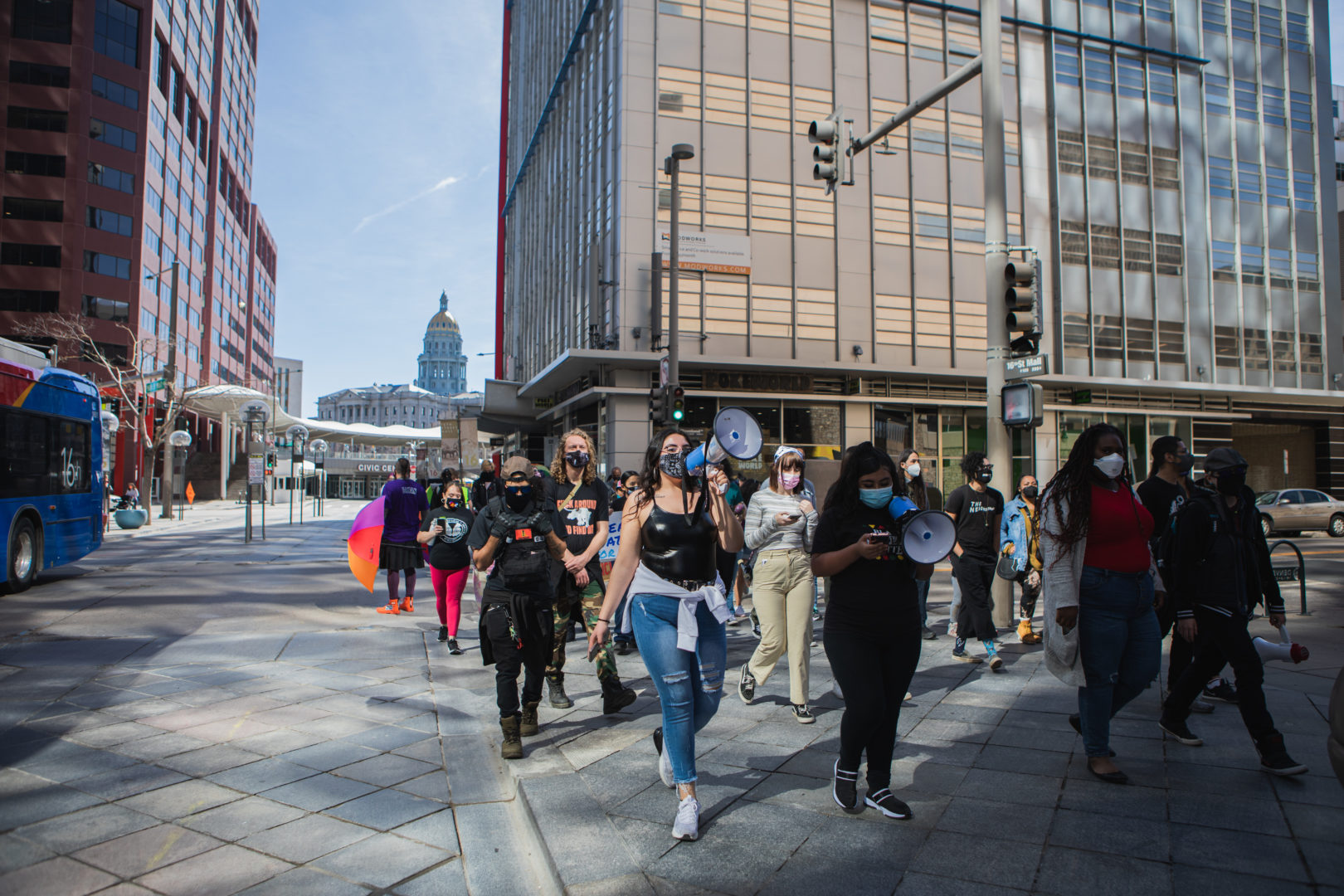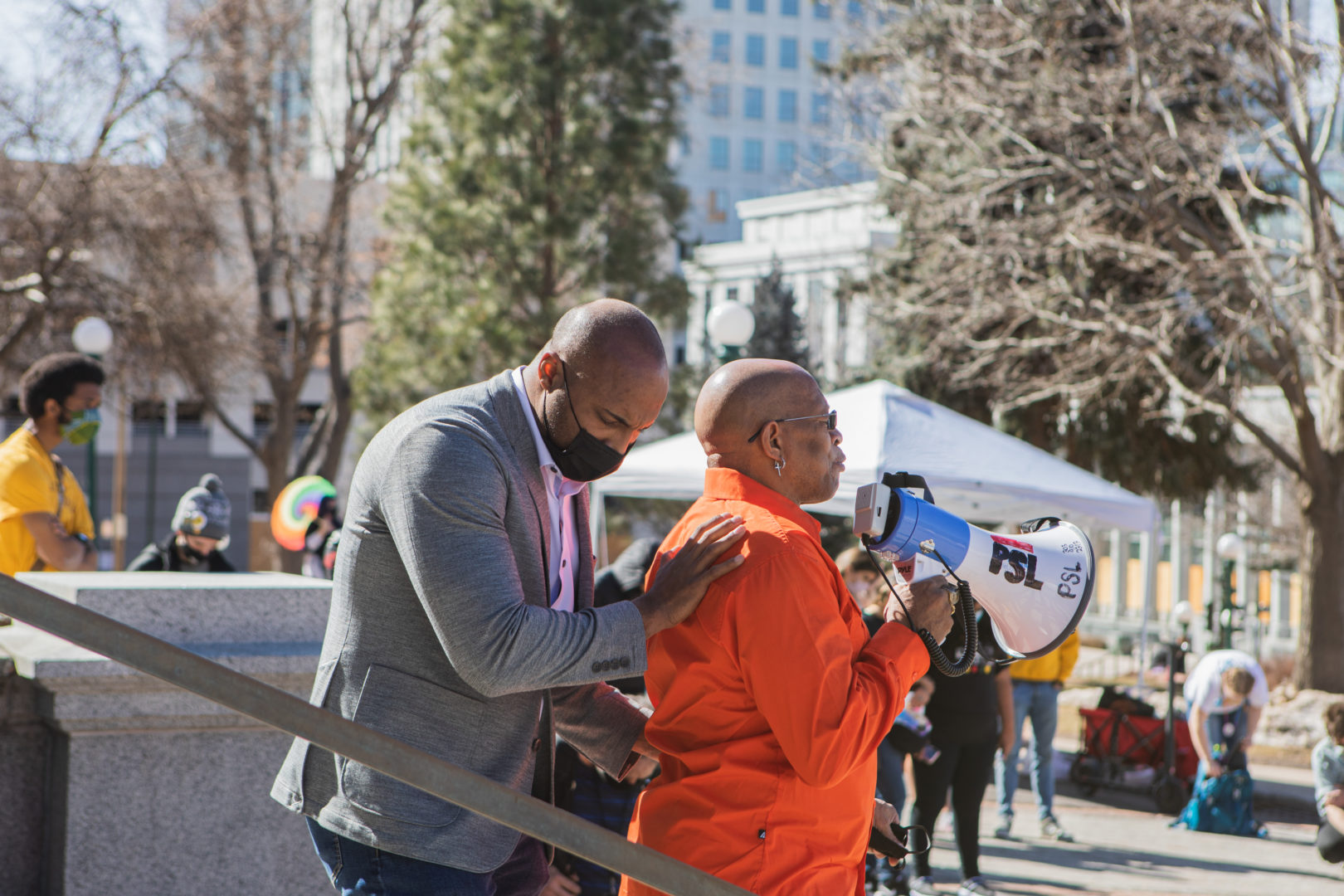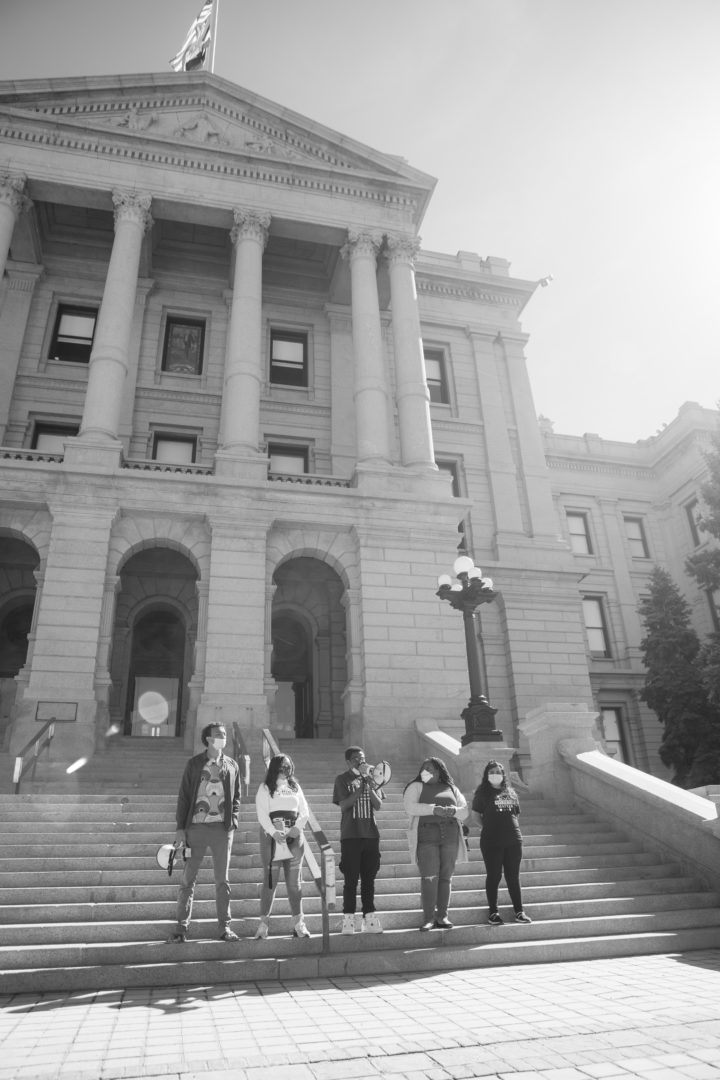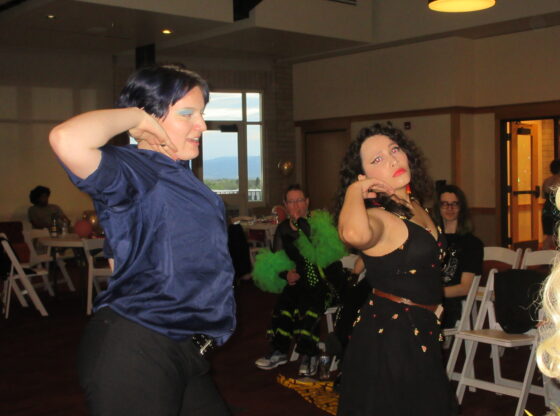The Latin America Center at the Josef Korbel School of International Studies started the Social Justice Solidarity Series (SJSS) in the 2015-16 school year. SJSS is a student group at DU that provides support to all students of color through activism and advocacy.
The initial goal of the series was to facilitate conversations on issues that impact the Latinx community. Now, the series also discusses issues that impact marginalized groups such as Indigenous and Black communities.
Two second-year graduate students in the Josef Korbel School—Rose Quispe and Brian Guzman—are active leaders in SJSS. Senior undergraduate student Victoria Martinez is the undergraduate student organizer for SJSS.
“Our goal is to create a safe space for students of color. We are continuing to do that, as more people come in, trust us and see the change on campus,” Quispe said.
At the beginning of each school year, SJSS hosts an open community forum as a way to bring student organizations together on campus. This helps SJSS narrow down what they want to focus on for the upcoming year.
“Our main priority as an organization is to help support other student organizations on campus. We put these events and panels on to help them get more involved. This year, we wanted to focus on racial injustices and the Black Lives Matter movement,” Martinez said.

The open forum serves as a community-building tool that helps social activist organizations work together to dismantle racism at DU.
“We invite students to share what they are working on and start the year by building coalitions with other student groups who may want to work with us. Then, we plan how we can support them throughout the year,” Quispe said.
So far, the organization only has three student organizers, but Guzman hopes they will be able to recruit more students and set up a single platform for undergraduate and graduate students.
“One of our goals for the future is to build a bridge between undergraduate and graduate students. There is not much communication going on with them. If it was not for Professor Schneider, we would have never known about Victoria. We hope that connection between graduate and undergraduate students will help to fix these issues of injustice,” Guzman said.
Despite the challenges of COVID-19, SJSS has been able to host a variety of virtual community organizers, panels and workshops.

“So far, we have had a couple events like the community organizer panel where we invited different community organizers from the Denver area to talk about their experiences. We also did an SJSS campaign workshop with former IRISE postdoc Daniel Kim, who gave a rundown on how to run a sustainable campaign like No More Pios,” Martinez said.
On March 6, SJSS sponsored the unity march at Denver’s state capitol. They were partnered with 10for10, a collective group of young people working to empower the surrounding community. It was started by founder Peter Lubembela, a student at Howard University when he got ten Black men to each put in ten dollars toward feeding one hundred people. Since then, 10for10 has expanded by organizing large service projects and fundraisers to achieve social and political change for the BIPOC community.
SJSS was fortunate enough to sponsor this march. It advocated for the intersectionalities of Denver and used Martinez’s connections from one of the panels, “New Year, More Activism” in early January.
“The most exciting event for me was the panel with the guest speakers in January [New Year, More Activism] with Shenika Carter and Terrance Roberts. You do not normally get to hear these stories from people of color speaking on their activism,” Guzman said.
If you would like to get involved with SJSS next quarter, you can look forward to more initiatives, panels and workshops from the group. Check out their Instagram (@du.sjss) for information on what events they are holding.












